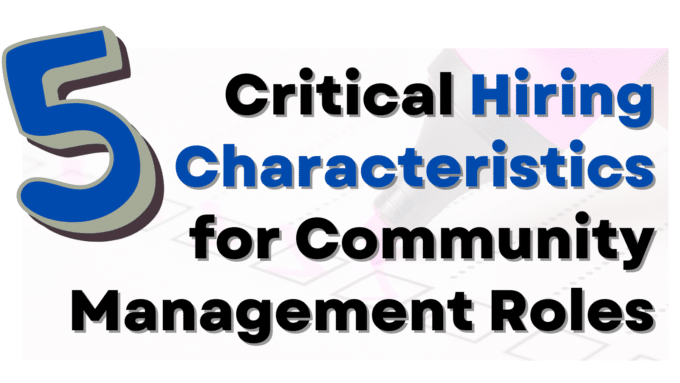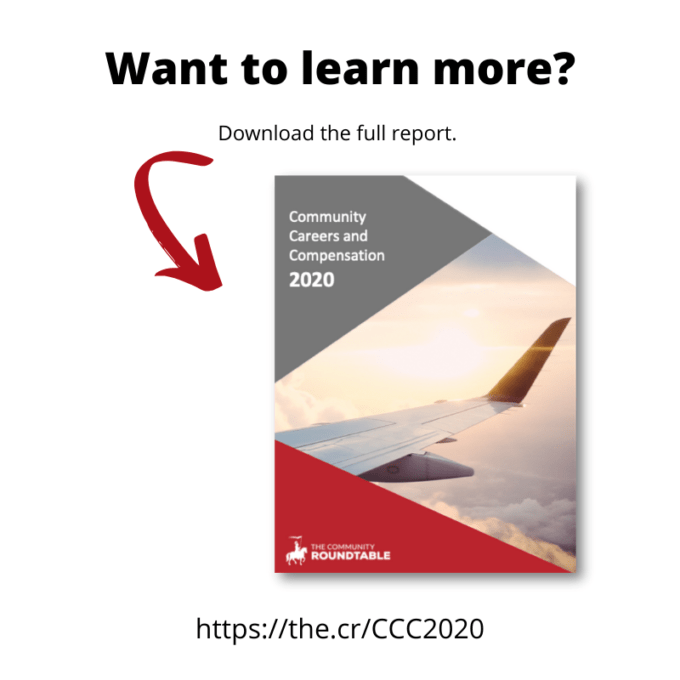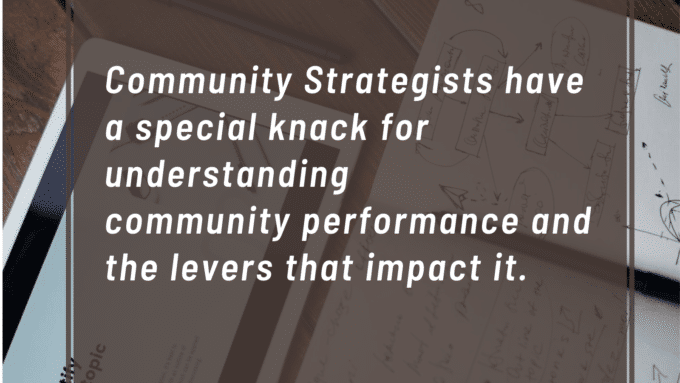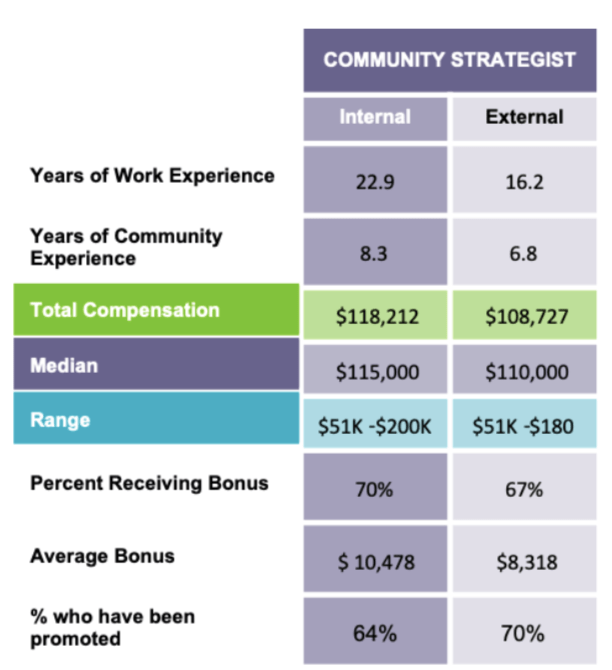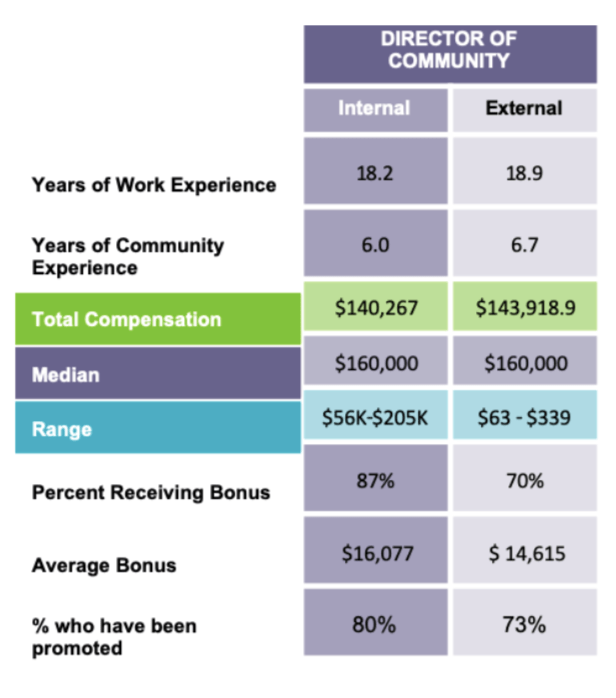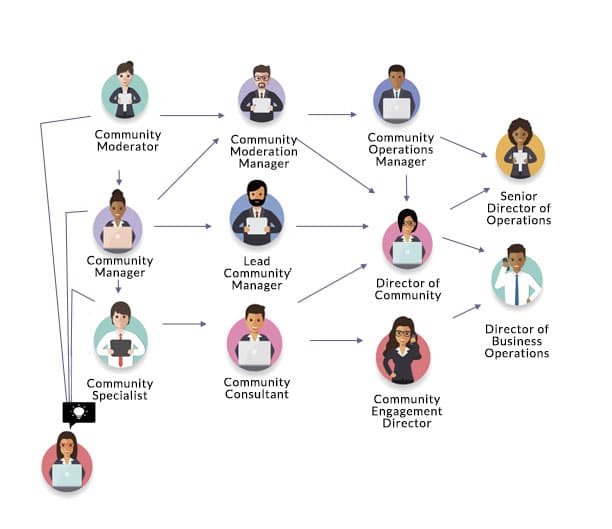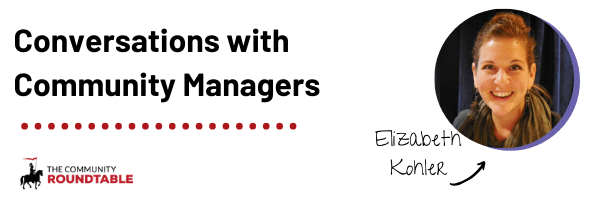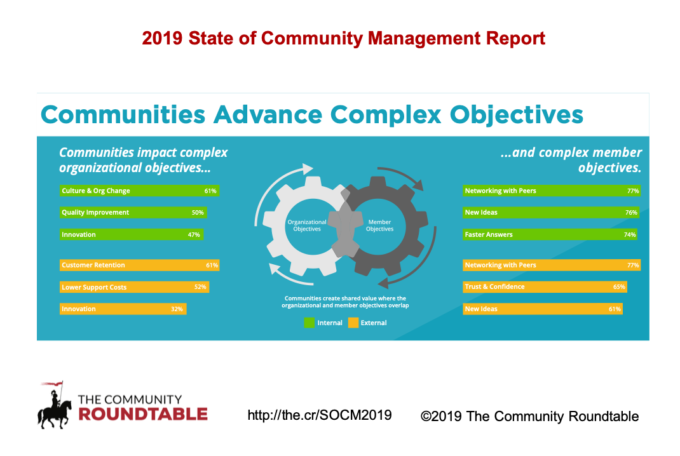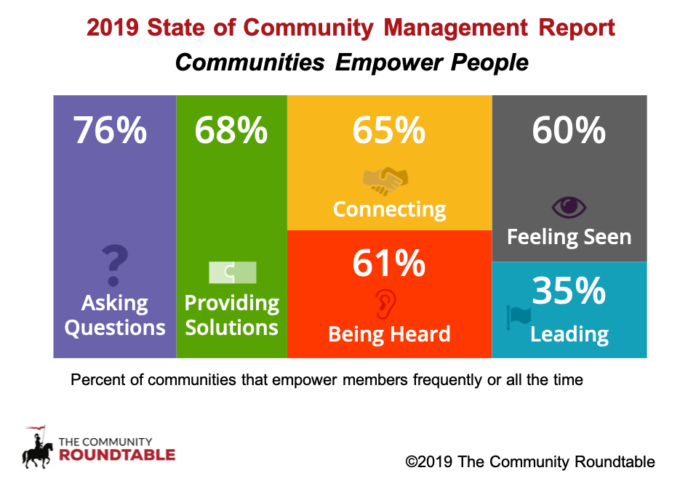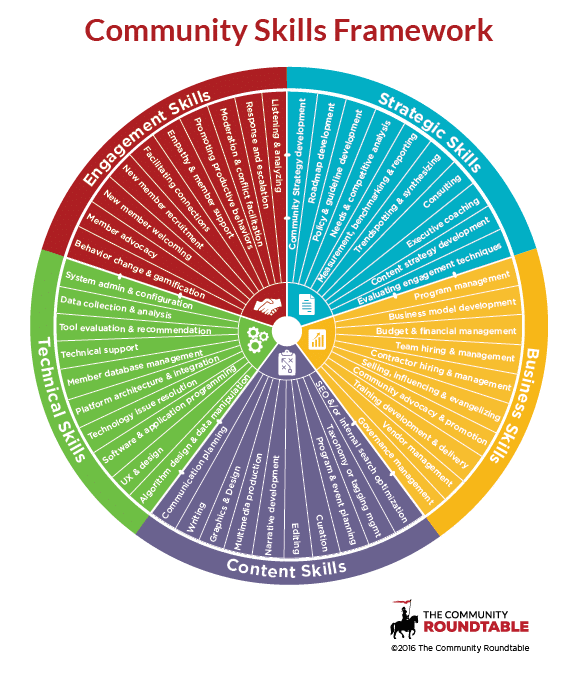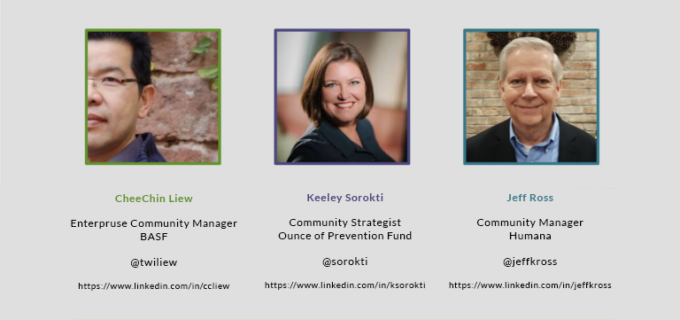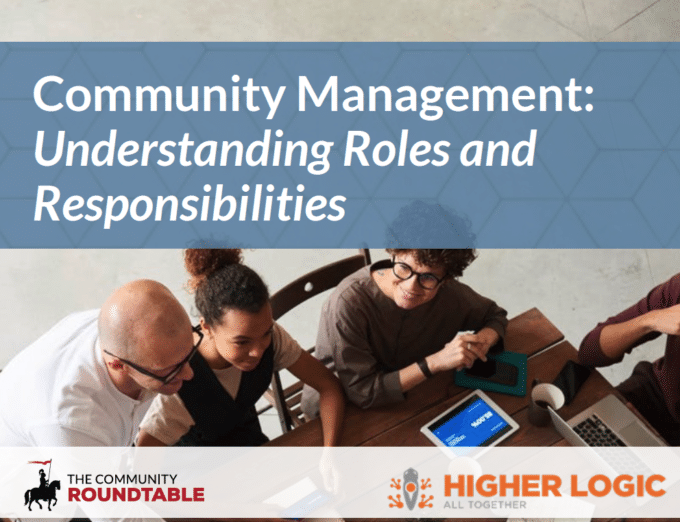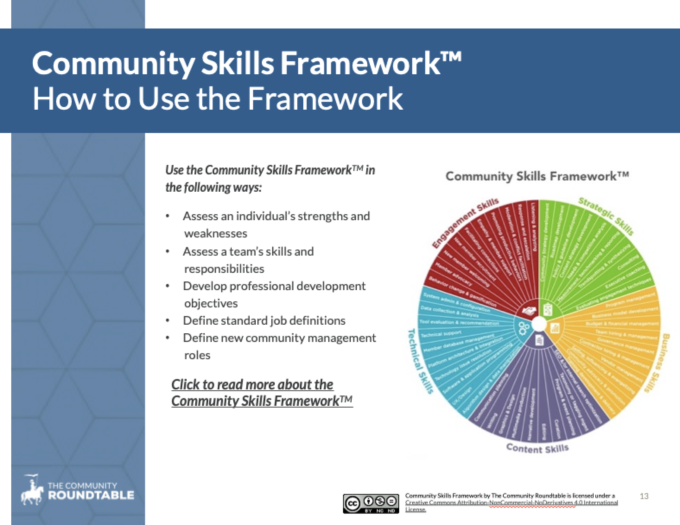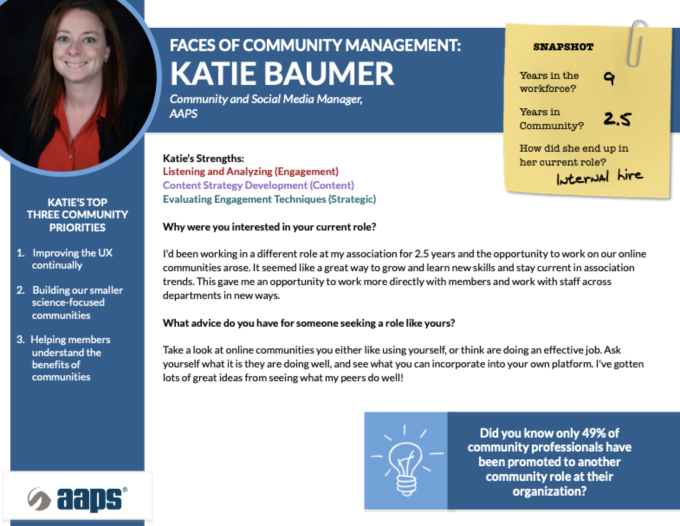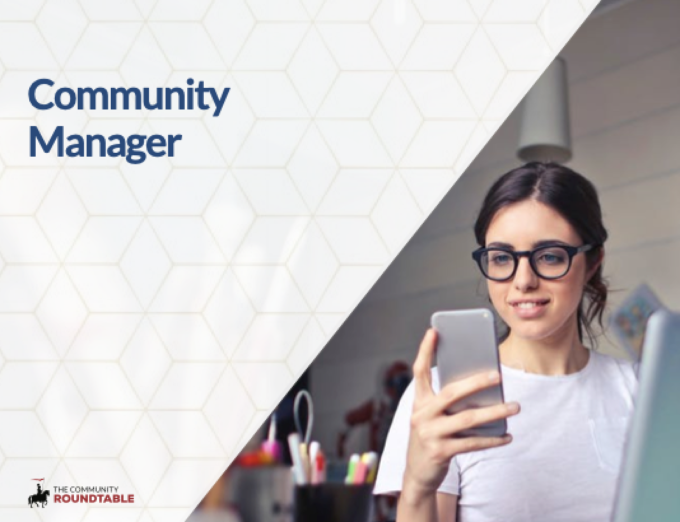In our State of Community Management research, we found that 47% of community roles are defined by HR teams, who might not always understand what your community team needs to succeed. A clear understanding of community roles and responsibilities is critical when building your community team.
Help them help you by providing a detailed look at what common community skills are, where your current team (even if that’s just you) excels, and what gaps need to be filled for future success.
You can use our Community Skills Framework to provide your HR team with a look at industry-standard terms and skills.
Three Tips for Building Your Community Team from Lisa Tallman
Lisa Tallman builds community at Easterseals for 26 national affiliates. Starting as a team of one, she approached team building from a strategic angle.
“I always have a business case for my community programs that I update annually. And one thing I always include is headcount. ‘Here’s what my current team is doing. Here’s how much time and effort it’s taking them to do that, and here’s what’s not getting done because we don’t have the resources.’ By showing my executives what we need to fulfill the strategic plan, I can tie community goals back into organizational goals.”
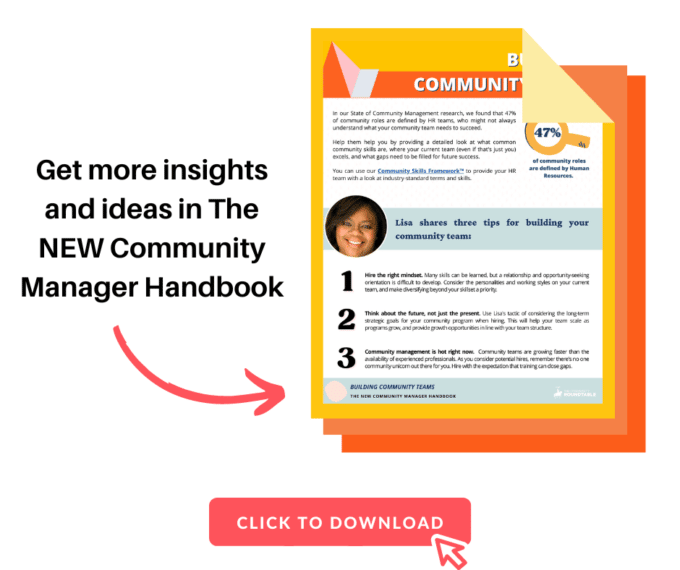
Here are three tips from Lisa on building a community team:
Hire the right mindset.
Many skills can be learned, but a relationship and opportunity-seeking orientation is difficult to develop. Consider the personalities and working styles on your current team, and make diversifying beyond your skillset a priority.
Think about the future, not just the present.
Use Lisa’s tactic of considering the long-term strategic goals for your community program when hiring. This will help your team scale as programs grow, and provide growth opportunities in line with your team structure.
Community management is hot right now.
Community teams are growing faster than the availability of experienced professionals. As you consider potential hires, remember there’s no one community unicorn out there for you. Hire with the expectation that training can close gaps.
Hear more advice from Lisa on building a community team on her episode of Lessons from the NEW Community Manager Handbook or download your copy of the NEW Community Manager Handbook today.
